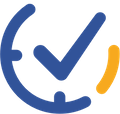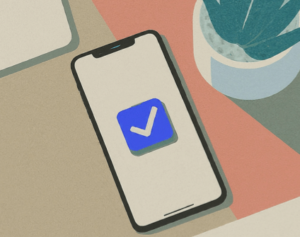Have you ever been in the zone, fully immersed in a task, when suddenly you’re interrupted? It could be a colleague popping into your office, a notification on your phone, or even your wandering thoughts. Interruptions are a common occurrence in our daily lives, but have you ever wondered what happens in your brain when you’re interrupted? And more importantly, how do these interruptions affect your productivity?
How Distractions Affect Your Brain and Productivity
To understand the science behind interruptions, we need to delve into the inner workings of our brains. When we’re focused on a task, our brains enter a state of flow, where neural networks work harmoniously to achieve optimal performance. This flow state is characterized by heightened concentration, increased productivity, and a sense of timelessness. Interruptions, however, can disrupt this delicate balance. When an interruption occurs, several processes come into play. First, your brain must shift its attention from the task at hand to the source of the interruption. It requires cognitive effort and activates the prefrontal cortex, a region responsible for decision-making and attention. The prefrontal cortex acts as a traffic controller, diverting cognitive resources away from the primary task and allocating them to process the interruption.
While the brain is skilled at handling such shifts, interruptions can still harm productivity. Research has shown that it takes an average of 23 minutes and 15 seconds to regain full focus after an interruption. This phenomenon, known as “attention residue,” occurs because the brain takes time to disengage from the interruption and fully re-engage with the original task. Each interruption, therefore, not only steals valuable time but also degrades the quality of our work. However, not all interruptions are created equal. Some are more disruptive than others. For instance, a face-to-face interruption is typically more disruptive than a simple email notification. Understanding the varying levels of disruption caused by different interruptions can help us mitigate their impact on productivity.

Dealing with Interruptions
One effective strategy is to establish boundaries with people who frequently interrupt you. Communicate to them that there are periods when you need to be uninterrupted, or politely ask them to check with you before interrupting. Setting clear expectations and boundaries can help create a helpful working environment where interruptions are minimized.
Another effective strategy involves using technology to manage interruptions. Implement features such as the “Do Not Disturb” mode on your devices during critical work periods. It sends a signal to others that you’re currently in a focused state and discourages unnecessary interruptions. Explore communication tools that allow you to set your availability status or use features like “busy” or “offline” to communicate your need for uninterrupted focus without direct communication.
Consider the physical aspect of your workspace. Create visible signals, like wearing headphones, to indicate when you’re in a concentrated work mode. This visual cue communicates to others that you’re engaged in a task and discourages unnecessary interruptions. Designing your workspace with minimal distractions and clear signals helps set the tone for a productive environment, reducing the likelihood of disruptions.
Turning Interruptions into Opportunities
But what if we reframed interruptions as opportunities? While interruptions can be seen as barriers to productivity, they can also provide opportunities for growth and connection. Instead of immediately ignoring interruptions as problems, try to embrace them as chances to take a break, get some fresh air, or engage with others. Interruptions can also offer valuable feedback on your work or present opportunities to learn something new.
Next time you’re interrupted, take a moment to reflect on what you can gain from the interruption. Can you learn something from the person interrupting you? Is there a way to incorporate the interruption into your work or thought process? By reframing interruptions as opportunities, you can convert them into moments of growth and enrichment.

Exploring the science behind interruptions can help you manage your impact and reduce disruptions. Setting boundaries with regular interrupters and seeing interruptions as opportunities can empower you to regain control over your focus. So, when you face an interruption, adopt the chance to turn it into something positive. Your brain and productivity will thank you.




